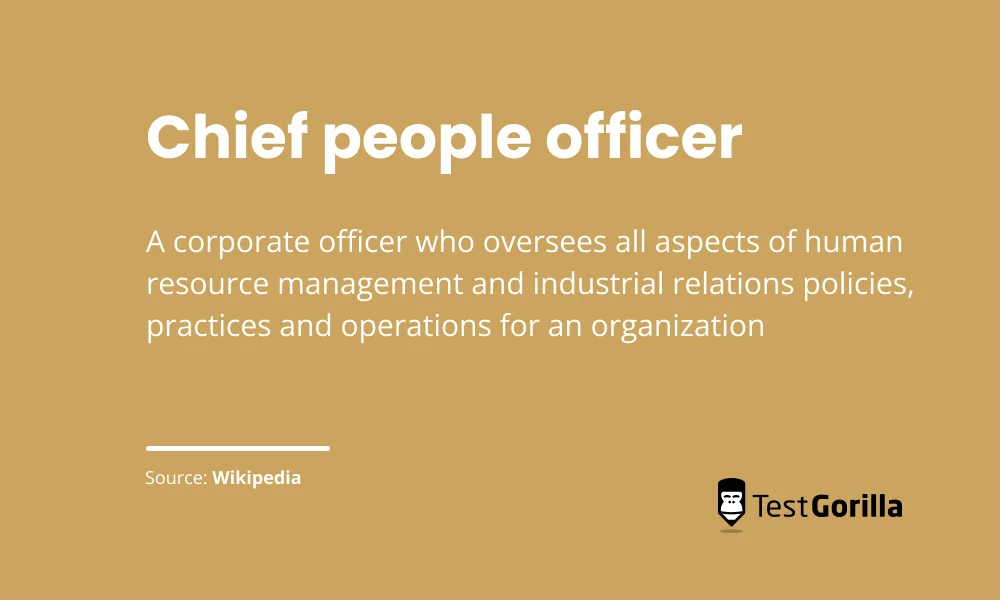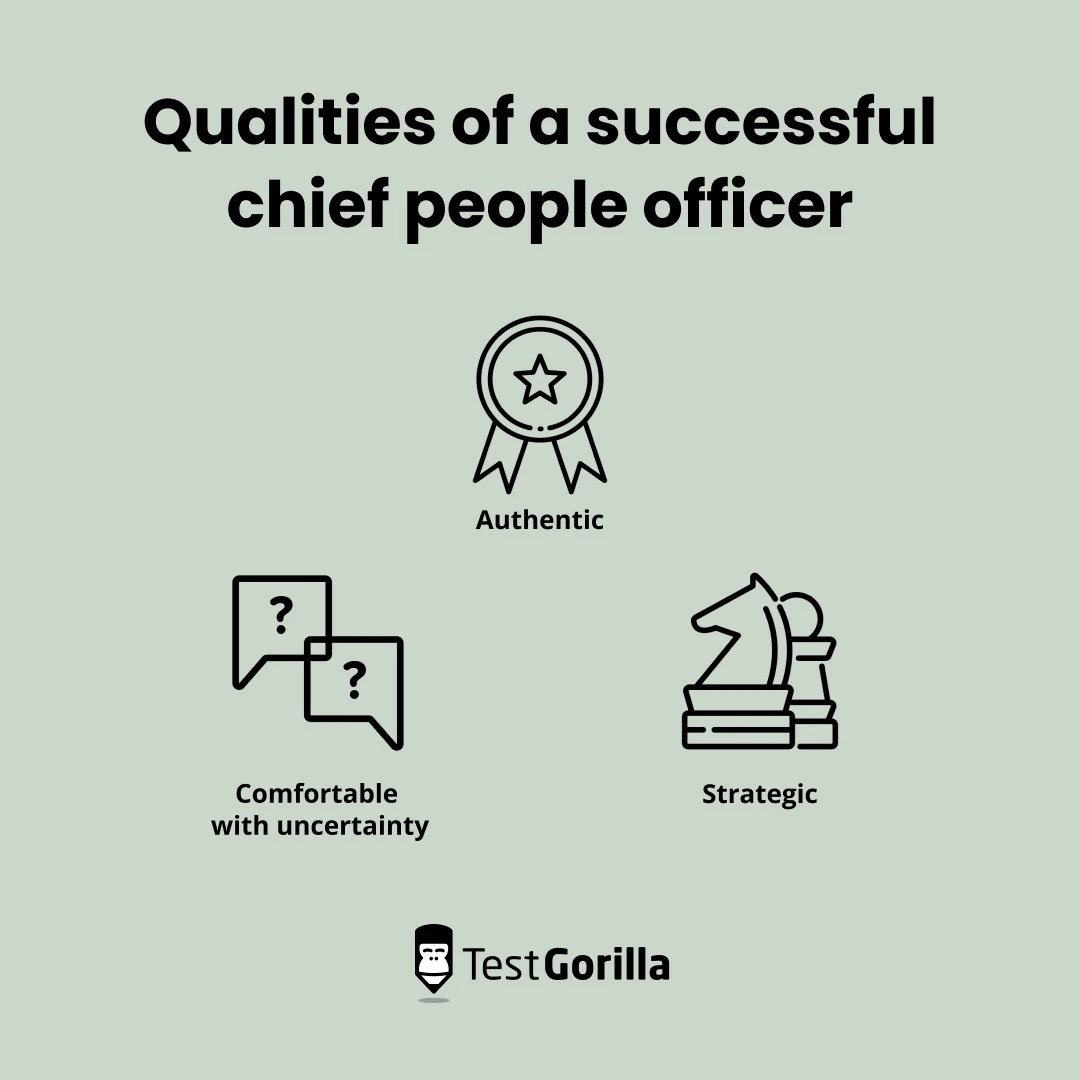Recent events have forced employers to take a look at their current work conditions and more closely examine the relationship between employee satisfaction and their productivity. Within the past decade, the advantage has shifted to favor employees over employers. This shift has led to the creation and elevation of the chief people officer position.
With unemployment reaching one of its lowest points in history in early 2020, candidates searching for jobs had the ability to be picky about where they chose to work. Not to mention, with the help of websites like Glassdoor, interested candidates are able to look at reviews made by real employees for any given employer and analyze the company’s culture without even stepping foot in their office.
As companies struggled to keep their top performers and attract new talent, the role of the chief people officer was designed to build and maintain a strong culture of excellence in the workplace, and to secure a bright future for the business.
Table of contents
What is a chief people officer?
Depending on the size and nature of your company (a small startup vs. a large corporation, for example), the chief people officer can have a myriad of duties. The role is often within the HR department but eclipses the normal tasks of an HR representative.
The chief people officer’s main responsibilities are to craft the values of a company and maximize employee potential. For example, since an overwhelming 71% of Millenials feel disengaged in the workplace, the need to boost employee morale is crucial. That’s one important area of focus for the chief people officer.
Roles and duties
The day-to-day responsibilities of a chief people officer can vary greatly depending on the size of a company. Typically, a CPO can expect the majority of their time to be spent talking with employees and managers, receiving feedback on company improvements. However, CPO’s might also find themselves in charge of performance reviews, payroll, hiring new employees, implementing and researching effective team building activities, and renewing benefits packages.
The chief people officer’s job often has a perfect blend of data-driven and spreadsheet-heavy duties, as well as people-related responsibilities. Since examples like payroll and benefits packages directly affect the livelihood of each employee, a CPO, especially one that is hired into a smaller company, can likely expect them to be in charge of those decisions.
Who should hire a chief people officer?
Most companies would gain an advantage by hiring a chief people officer. Smaller businesses, like startups, would benefit greatly from hiring CPO the minute they experience growth because a company’s success depends heavily on the culture and happiness within the workplace. For example, 87% of millennials in the workforce expect individual growth and learning. A successful CPO will understand how to implement a plan of upward mobility among each employee.
By having a CPO to consistently analyze and course correct any cracks in the workforce’s practices, the business is able to adapt to the changes in real-time. Additionally, when startups experience unexpected growth, the duties of an HR representative can suddenly become overwhelming for just one individual. Hiring a chief people officer can help mitigate the day-to-day challenges in the Human Resources department.
Larger corporations, like McDonald’s, Target, and Amazon would also benefit from hiring a chief people officer. In the wake of cancel culture, hiring someone to handle any kind of scandal, large or small, is crucial for keeping your business alive. Strong CPOs will be able to quickly analyze the severity of the problem, determine the impact it will have on the company and its employees, and figure out the best course of action to solve the issue.
The role of a CPO within a larger corporation may look quite different compared to the same role at a small startup. At a big company, the chief people officer ensures that the company is a well-oiled machine. They keep track of how each employee feels about working for the company, whether they just started or just celebrated their ten year anniversary. And they emphasize the importance of upper management communicating with the rest of the team, since transparency and support directly affect the overall success of the business.
Qualities of a successful chief people officer
For companies that decide to hire a chief people officer, it’s important to hire the perfect person for the job. The candidate chosen should possess a highly mature set of skills and demonstrate a strong aptitude when dealing with high-pressure situations. There are a few key components to consider when looking to hire a chief people officer.
Authentic
An excellent CPO should be authentic and empathetic. When employees get the sense that their CPO isn’t genuine, it’s difficult to establish trust. The CPO should also be extremely business savvy in order to improve the company culture in a way that benefits the employees, but not at the expense of the business.
Comfortable with uncertainty
CPO’s also need to be comfortable with uncertainty. Oftentimes when a CPO is hired on, it’s a reactive decision rather than a proactive one. Whether the overall company culture is suffering, or a business finds itself in the wake of an ugly scandal, a chief people officer needs to be ready to lead a company through any instability they are experiencing.
Strategic
Lastly, a great CPO should be well-versed in establishing a strategic vision for the company. This is achieved through a blend of careful observation of employee interactions, robust spreadsheets, knowledge of past company policies and regulations, and the organization’s missions and values.
The bottom line
When an HR department decides to hire a chief people officer, it means that they sincerely want to see the company, and its employees, succeed. A CPO knows exactly how to harness the strong players, and coach the employees that may need a little extra hand-holding.
A company that invests in its employees is looking at the big picture and setting them up for long-term success. While the role may vary from company to company, one thing remains consistent within the role: a CPO greatly improves the overall performance of the individual, which in turn, creates a thriving and exciting work environment.
Related posts
Hire the best candidates with TestGorilla
Create pre-employment assessments in minutes to screen candidates, save time, and hire the best talent.
Latest posts
The best advice in pre-employment testing, in your inbox.
No spam. Unsubscribe at any time.

Hire the best. No bias. No stress.
Our screening tests identify the best candidates and make your hiring decisions faster, easier, and bias-free.
Free resources
This checklist covers key features you should look for when choosing a skills testing platform
This resource will help you develop an onboarding checklist for new hires.
How to assess your candidates' attention to detail.
Learn how to get human resources certified through HRCI or SHRM.
Learn how you can improve the level of talent at your company.
Learn how CapitalT reduced hiring bias with online skills assessments.
Learn how to make the resume process more efficient and more effective.
Improve your hiring strategy with these 7 critical recruitment metrics.
Learn how Sukhi decreased time spent reviewing resumes by 83%!
Hire more efficiently with these hacks that 99% of recruiters aren't using.
Make a business case for diversity and inclusion initiatives with this data.



















